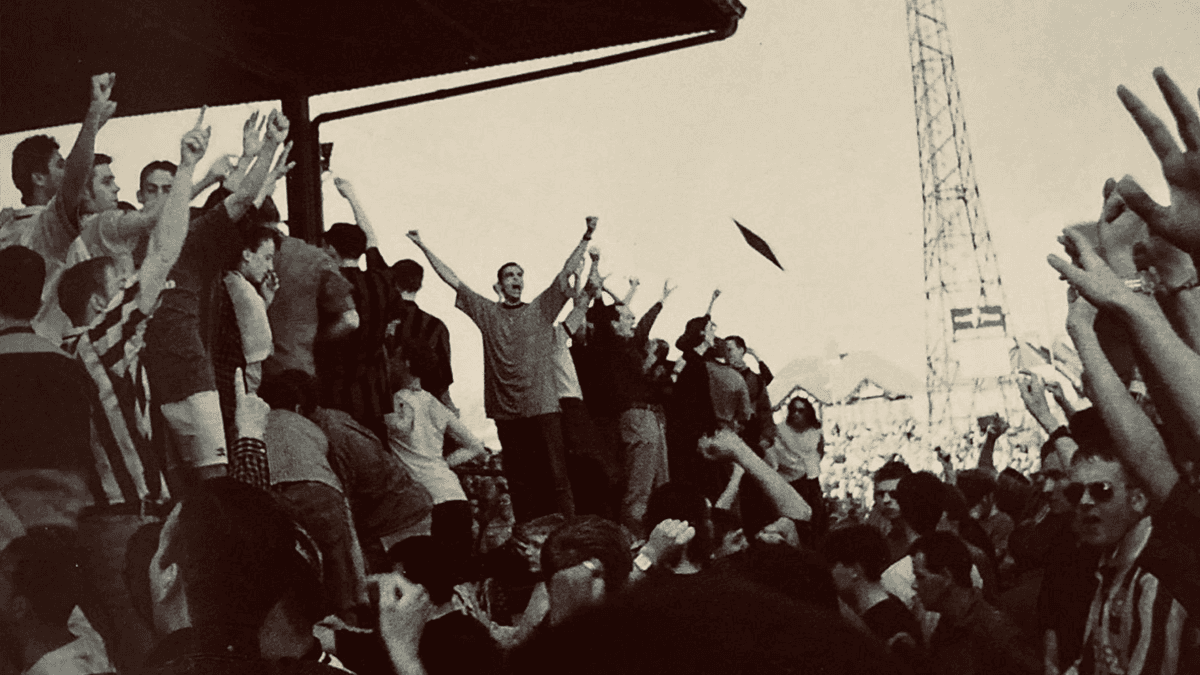"I don't even do rap, I do photography": a conversation with João Medeiros
Oct 17, 2023
João is exhibiting at the Museum of Image and Sound, the MIS, in São Paulo. Titled "I Don't Even Rap," the exhibition follows the national rap scene through the eyes of the artist. The images become decisive in documenting a movement that is growing more and more in Brazil and, also, in the world.
We talked a little with him about his first solo exhibition and his work in general. Check it out below:
1- The name of the exhibition says "I don't even rap," but you are close to it and, despite everything, you keep track of artists and events in the field. How do you think that, being who you are (photographer and also journalist), you contribute to the scene?
The deal with the name of the exhibition is a bit that, to assert that I don't rap — I do photography — and that I'm not just at the service of rappers and artists, but rather collaborating with them, being myself, also, an artist. The goal is for the person who is going to see the exhibition to see an exhibition of my photographic work, and not just photos of famous people, you know? And by the reception, this goal has been achieved. Today I can say that my work has innovation and originality, as the MIS itself describes, and, above all, a unique identity. As a photographer and journalist, I believe I objectively contribute to the registration of a vibrant era in Brazil of one of the most powerful phenomena in the world, which is rap music that, in a larger sense, is an unfolding of the oral tradition of various cultures of the global south, especially African. I am sure that in the future, my words and images about what is happening will gain even more power.

2- Over the years, you have been occupying spaces and exposing your perspective, just like rap itself. What is your relationship with it, and what do you seek to convey with your photographs?
Rap is a big part of my life; there isn't a day that goes by without me listening to rap — it is a very intimate and passionate relationship that I believe translates into my photographs. In this specific series, which focuses on portraits of rappers, I try to bring these people who are often placed in this idolized position down to a more human level and, consequently, more vulnerable. Making rap is often wearing a superhero cape or a villain's mask, or an anti-hero's irony, and I want to humanize these people and create a window where the audience can see the more human side of these artists, in an intimacy that can only be built over time and mutual respect.
3- How do you think your photographs can challenge the stereotypes created around rap culture, which is often marginalized?
I believe that a large part of the answer to this question lies in the previous answer! The big problem with stereotypes is that they are the only story told about a group to the point of becoming "truth" in common sense and marginalizing those groups. I believe that to challenge any stereotype, it is necessary to tell stories with as much plurality as possible and preferably by the people who live those stories.

4- Your research permeates the different forms of expression of Brazilian youth. How do you think this exhibition contributes to the understanding of Brazilian rap, its artists, and works?
The "I Don't Even Rap" is a small part of what rap is today in Brazil, but I believe it helps in understanding who some of the main names of the scene are today. Rap has also always been a matter of identification, so the visual is extremely important. My photos capture a lot of this as well: how rappers dress, present themselves... In Brazil, I think rappers still underestimate the power of their own images, barring exceptions; they don't care too much about having good photos for longevity, that communicate who they are and how they are portrayed at a given time...




